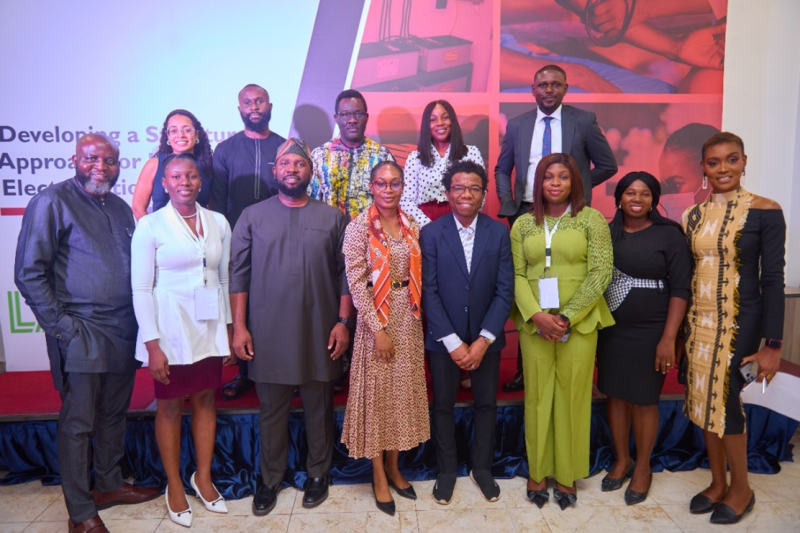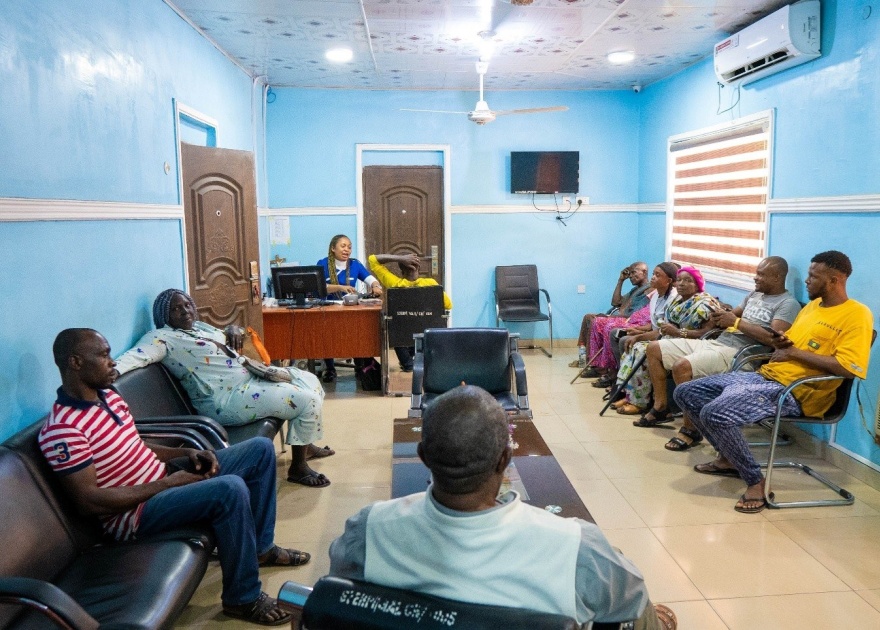Stakeholders unite in Abuja to shape Nigeria’s National Healthcare Electrification Framework
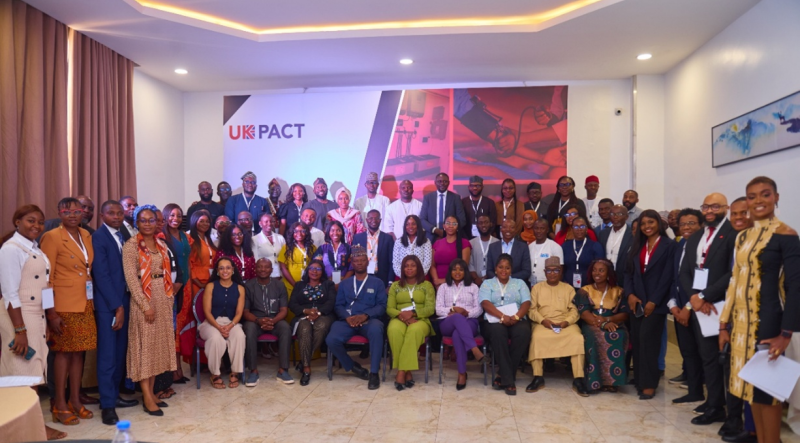
In a major step toward strengthening Nigeria’s healthcare delivery system, government ministries, development partners, representatives from the private sector, and civil society groups convened in Abuja for a high-level Stakeholder Engagement Workshop on Thursday 19th November to support the development of the country’s National Healthcare Electrification Framework (NHEF).
The workshop forms part of the UK Partnering for Accelerated Climate Transitions (PACT)-funded programme, Developing a Structured Approach for Healthcare Electrification in Nigeria, implemented by Landell Mills. You can read more about the contract on our website.
Nigeria continues to face critical energy deficits in its healthcare sector. The average daily supply for a typical primary healthcare facility in Nigeria is four hours, leading to service disruptions, weak maternal care, vaccine storage challenges, and high running costs for diesel generators.
Expanding the use of clean, reliable energy solutions is therefore essential – not only to stabilise power in healthcare facilities but also to reduce operating costs, improve service quality, and ensure resilient, climate-smart healthcare delivery across the country. The NHEF aims to provide a unified, sustainable national approach that addresses decades of fragmented, short-term electrification interventions.
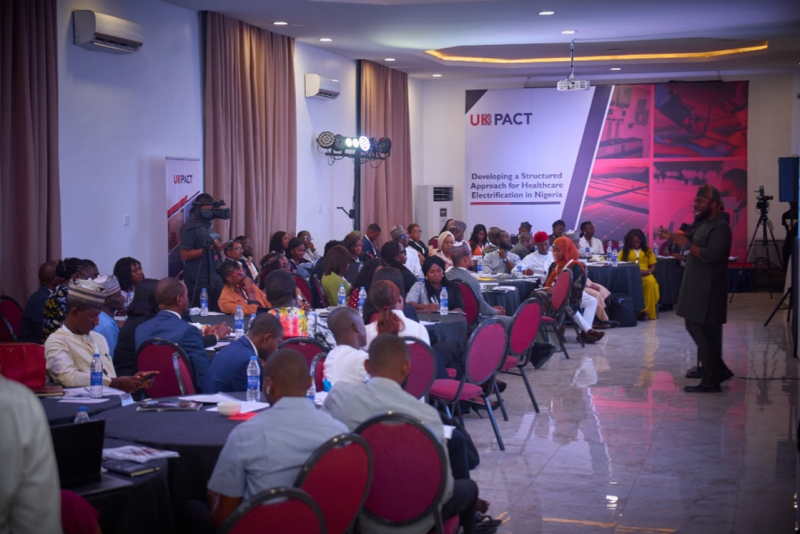
Government, donors, and private sector representatives call for a unified national vision
Delivering remarks on behalf of the Honourable Minister of Power, Chief Adebayo A. Adelabu, the Ministry’s representative Engr. Tope Dina underscored the central role of electricity in enabling functional healthcare services. He emphasised that reliable power is essential for diagnostics, emergency care, maternal health, and service delivery in rural communities. He called for “frank, technically-grounded dialogue” and stronger collaboration to ensure that electrification efforts translate into lasting improvements.
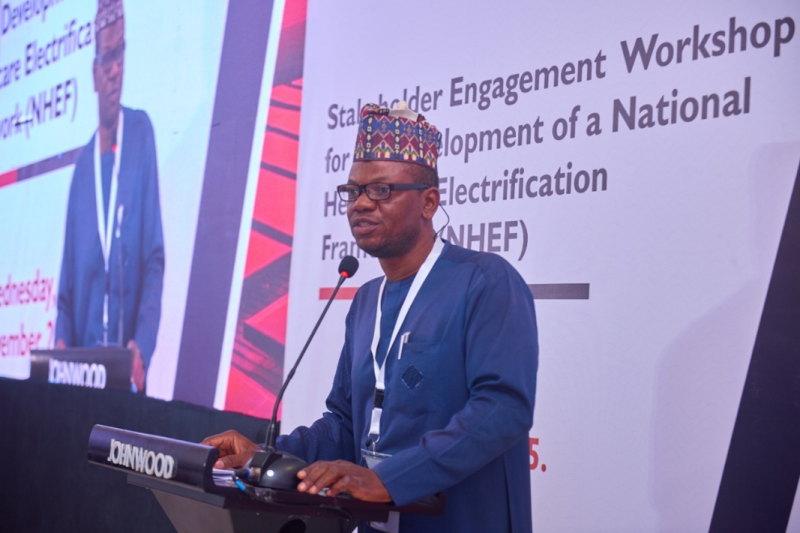
Speaking on behalf of the Foreign, Commonwealth & Development Office Nigeria, Mrs. Folakemi Aletan, UK PACT Officer, highlighted the shift in global development practices toward partnership-driven models based on shared ownership. She pointed to innovations such as drone-enabled vaccine delivery as evidence of what is possible when technology and sustainable power systems work together. “Functional, sustainable electricity in every healthcare facility is indispensable for improving outcomes and building resilience,” she said.
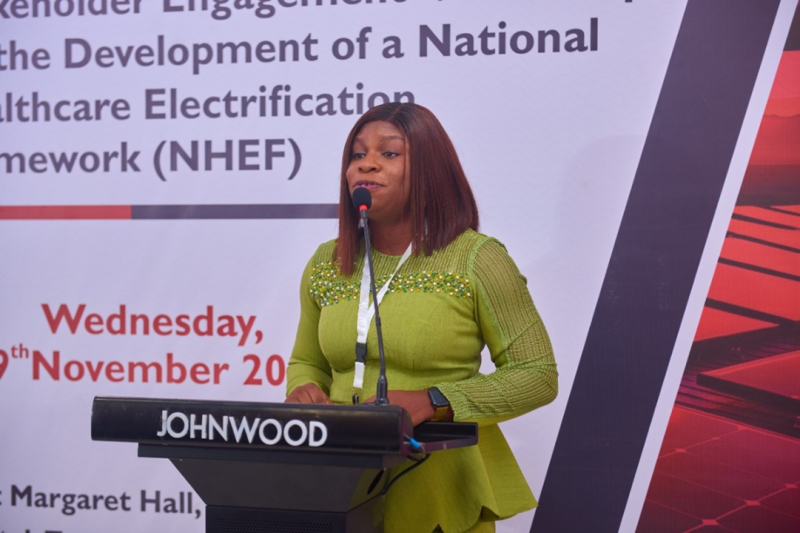
Dr. Bello Salman, representing the Managing Director of the Rural Electrification Agency, Mr Abba Aliyu, stressed that previous electrification initiatives suffered from poor coordination and weak lifecycle planning. He emphasised the need for robust data collection, technical verification, and long-term operations and maintenance (O&M) strategies to avoid system failures after installation. He urged stakeholders to embed sustainability principles from project inception.
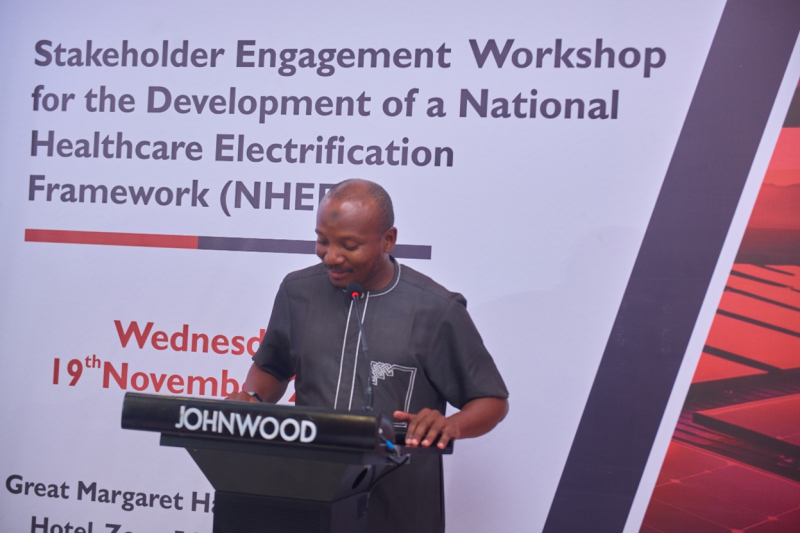
From the health sector, Dr. Faleke, representing Dr. Muyi Aina, Executive Director of the National Primary Health Care Development Agency of Nigeria, highlighted the need for consistent assessments and system checks to ensure electrification efforts strengthen, and do not sit apart from, broader health system priorities.
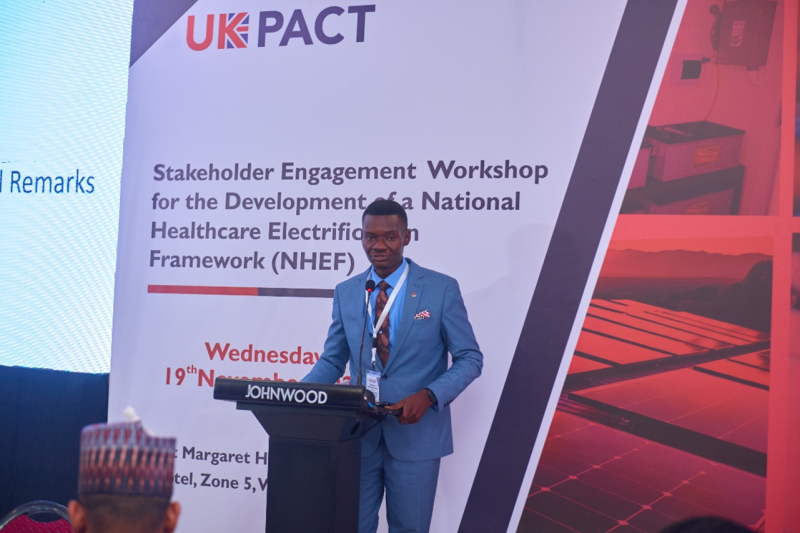
Landell Mills’ Project Manager, Ms. Yasmin Kirk, reaffirmed our presence in Nigeria and our commitment to delivering climate-resilient, gender-responsive development solutions across the country.
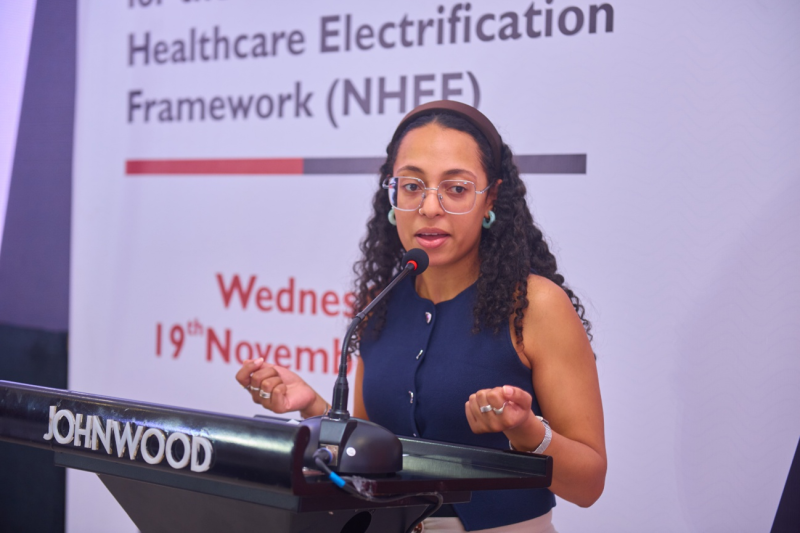
Best practices and models for scale highlighted in technical presentations
The workshop featured technical presentations from the United Nations Children's Fund (UNICEF) and Landell Mills, showcasing innovations and implementation lessons relevant to the development of the NHEF.
UNICEF's Water, Sanitation, and Hygiene Manager, Mr. Chiranjibi Tiwari, presented findings from the Climate Resilient Infrastructure for Basic Services initiative, which has delivered low-cost, climate-proofed infrastructure upgrades across 84 primary healthcare centres and schools. The presentation highlighted how engineering-led, data-driven assessments, combined with community participation, can significantly reduce vulnerability to flooding, heat, water scarcity, and other climate risks.
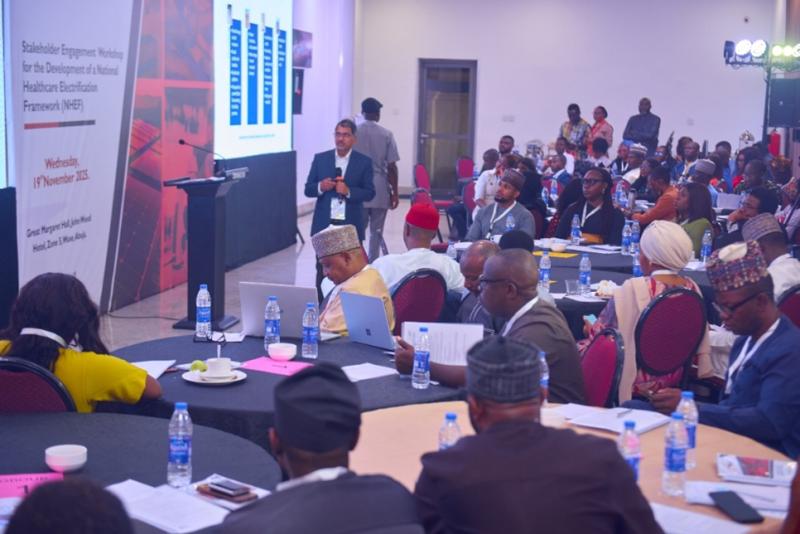
Team Leader for the UK PACT NHEF project, Mr. Tinyan Ogiehor, outlined the emerging structure of the Framework. He stressed that Nigeria must transition from installations driven by Engineering, Procurement, and Construction toward service-based electrification models backed by O&M, performance indicators, and renewable energy economics suited to the post-subsidy environment. The NHEF, he explained, aims to provide a blueprint for sustainable models, financing mechanisms, policy alignment, and coordinated delivery across all levels of government.
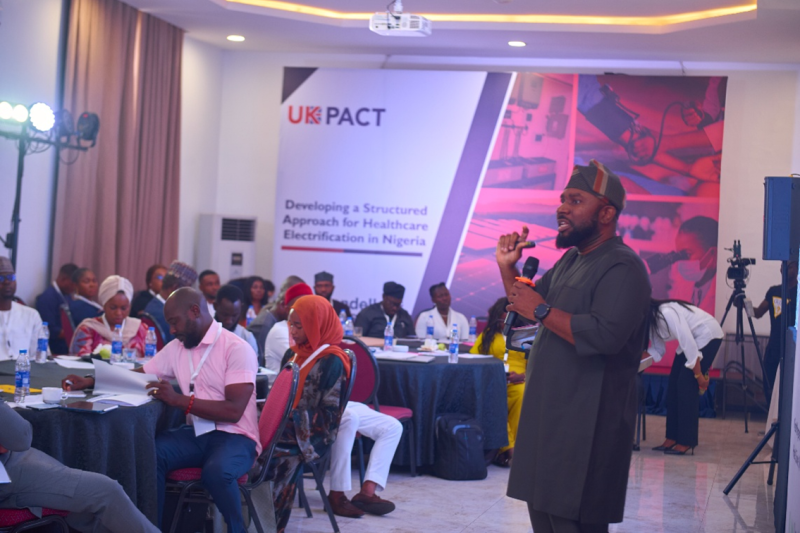
Breakout groups identify national priorities for electrification reform
Participants were divided into four groups reflecting the core pillars of the NHEF:
- National Framework
- Investment and financing
- Sustainable business models
- Coordination and coalition building
Across all groups, several systemic priorities emerged:
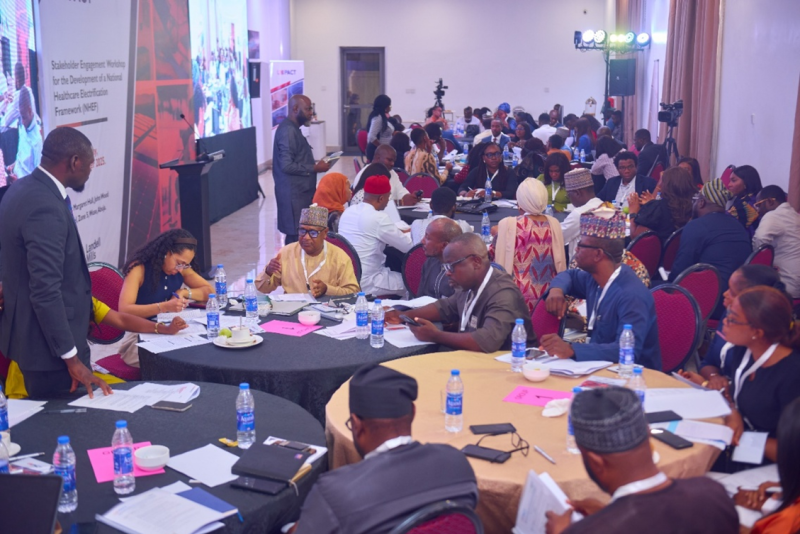
- Coordination is critical
Stakeholders emphasised that the lack of a unified coordination mechanism has led to duplication, inconsistent standards, and poor sustainability. A national platform with strong data systems is needed. - Financing must be long-term and blended
Participants agreed that capital expenditure alone is not enough. Long-term funding for O&M, performance-based grants, and blended finance structures are essential to ensure uptime. - Sustainable business models must ensure clear operational responsibilities
Stakeholders identified public-private partnerships and models led by energy service companies as strong pathways for professionalised maintenance and predictable service levels. - Community ownership strengthens system reliability
Community-based cooperatives were noted as viable, provided they include strong governance and oversight. - A strong policy environment is foundational
Clear national standards, enabling regulations, and alignment across federal and state institutions are required to ensure scale and durability.
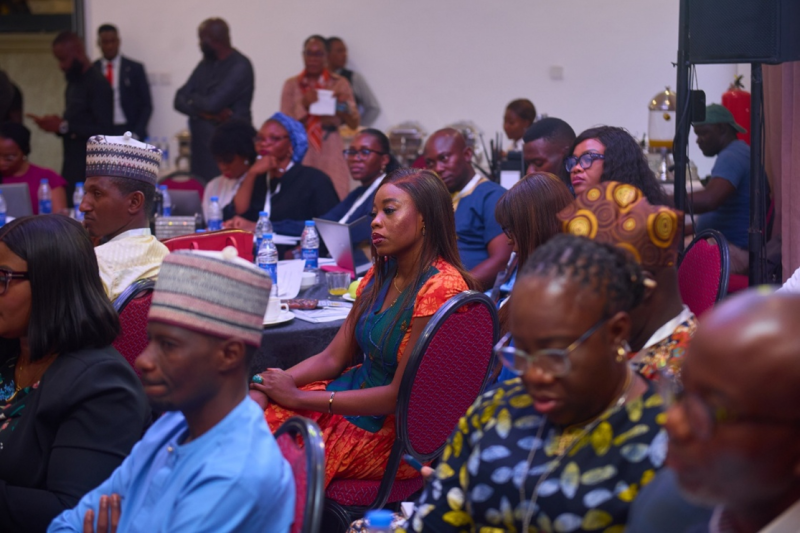
A milestone toward sustainable healthcare electrification
The workshop closed with questions and a call for continued collaboration as the NHEF development process advances. Stakeholders expressed strong support for the framework and reaffirmed the need for partnership-driven, data-backed, and sustainability-focused solutions to power Nigeria’s healthcare system.
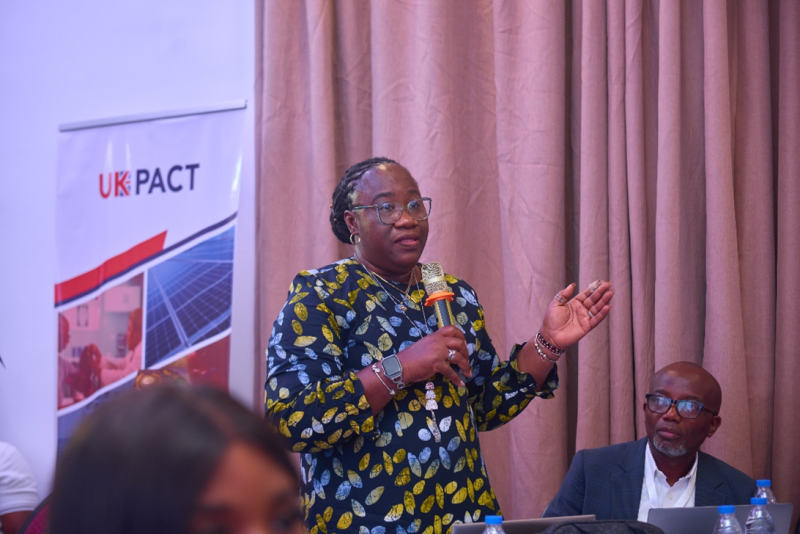
The outcomes of this workshop will directly inform the draft National Healthcare Electrification Framework, scheduled for development and validation in the coming months under the UK PACT programme.
